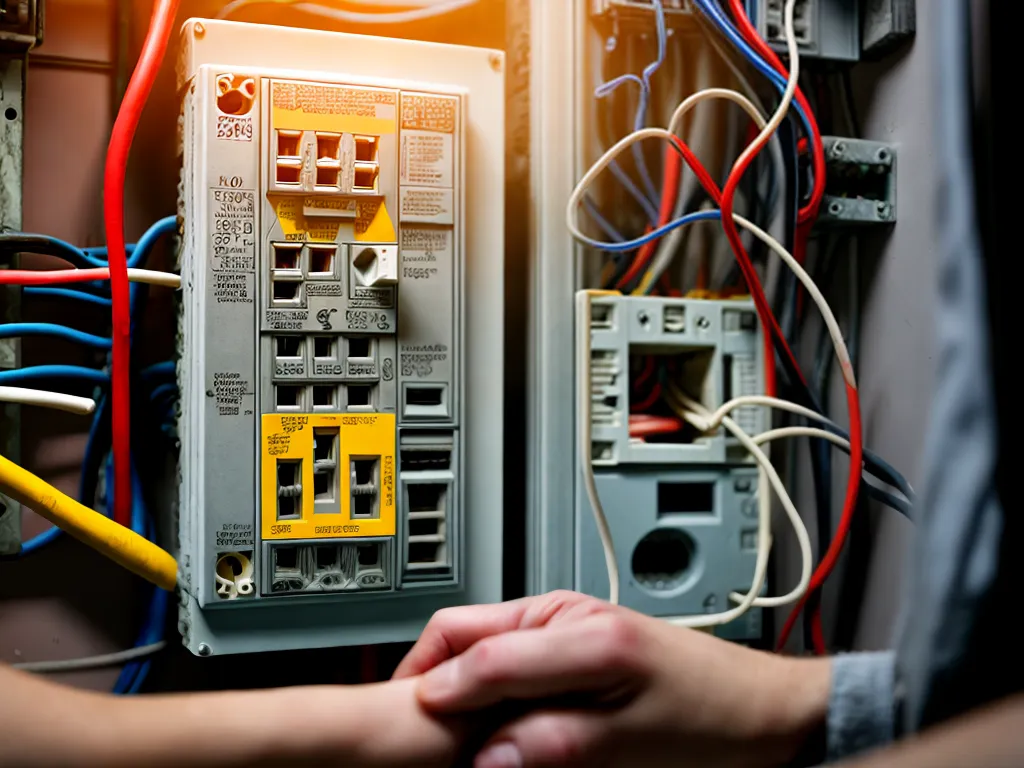
As a homeowner, you likely assume that any electrical work done on your house follows proper safety codes and regulations. Unfortunately, that's not always the case. Even licensed electricians sometimes overlook violations that could put you and your family at risk. Let's explore some of the most common electrical code breaches that you may not know about.
Outdated Electrical Panels
An electrical panel, or breaker box, controls and distributes electricity throughout your home. If your panel is outdated, it could present some safety issues:
-
Overloaded circuits - Older panels often lack enough circuits to handle all the electricity needs of modern homes. As a result, you may experience frequent tripping of breakers. This indicates the circuits are overloaded and at risk of overheating.
-
Faulty breakers - Breakers in old panels can malfunction over time. They may fail to trip when they should or won't reset properly after tripping. This compromises their ability to prevent overloads.
-
Insufficient amperage - Houses built prior to the 1960s often have 60- or 100-amp service panels. These lower capacity panels can't handle heavy use of large appliances. Upgrading to a 150-200 amp panel reduces tripping and overloading.
Ideally, outdated electrical panels should be replaced. At minimum, having a licensed electrician inspect and service the panel is wise.
Double-Tapping Breakers
Double-tapping is when two or more wires are connected to a single breaker in the electrical panel. This overloads the circuit and increases fire risk. While permitted in the past, double-tapping has been banned under the electrical code for over 50 years. Yet it's still found in some older homes.
Wrong Size Breakers
Using a breaker with too high an amp rating can allow more power to flow through a circuit than safe. For example, a 20-amp breaker might be installed instead of the required 15-amp breaker. This creates a risk of overheating the wiring. Always use properly rated breakers for each circuit.
Un-Grounded Outlets
Proper electrical outlets have a third prong for grounding. This safely diverts any stray electrical current into the ground. Homes built before the 1960s often lacked grounded outlets. While replacing ungrounded outlets isn't required, it substantially improves safety. Adding GFCI outlets also helps protect against shocks.
Unsafe Wiring Practices
Poor wiring practices can occur in both new and old construction:
-
Unsecured cables - Romex wiring should be stapled at regular intervals per code. Loose cables are unsafe.
-
Wire splices in walls - Except for simple pigtailing, splices must be inside junction boxes. Unprotected splices pose a fire hazard.
-
Overfilled boxes - Too many wires crammed into a box stresses connections, creating heat buildup.
-
Improper wire gauges - Using wire that's too small for the amperage rating can cause overheating. Follow codes for size.
Missing Junction Box Access
Junction boxes give access to wiring connections for inspection and maintenance. They must remain accessible after drywall is installed per code. Sometimes electricians improperly bury boxes behind finished walls. Any covered boxes should be uncovered for safety.
Unpermitted Work
Any significant electrical work in a home requires a permit from your local building department. Only licensed electricians should perform major upgrades or new wiring. Unpermitted work dodges inspections designed to catch code violations. Always verify permits were obtained for electrical projects.
While not all encompassing, the violations highlighted above give homeowners greater awareness regarding electrical safety. Don't hesitate to have a reputable electrician inspect your home's electrical system if you have any concerns. Staying vigilant helps ensure your family's protection against electrical hazards.